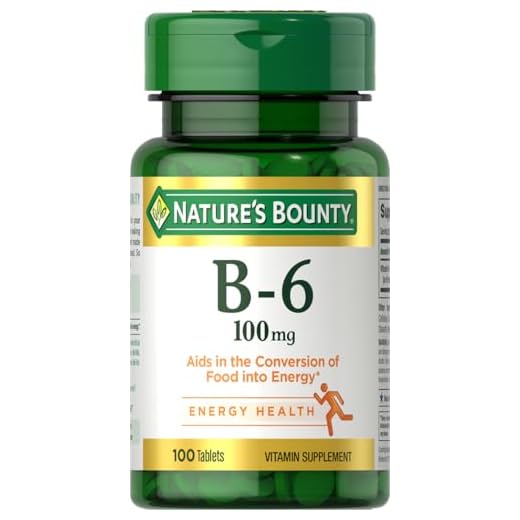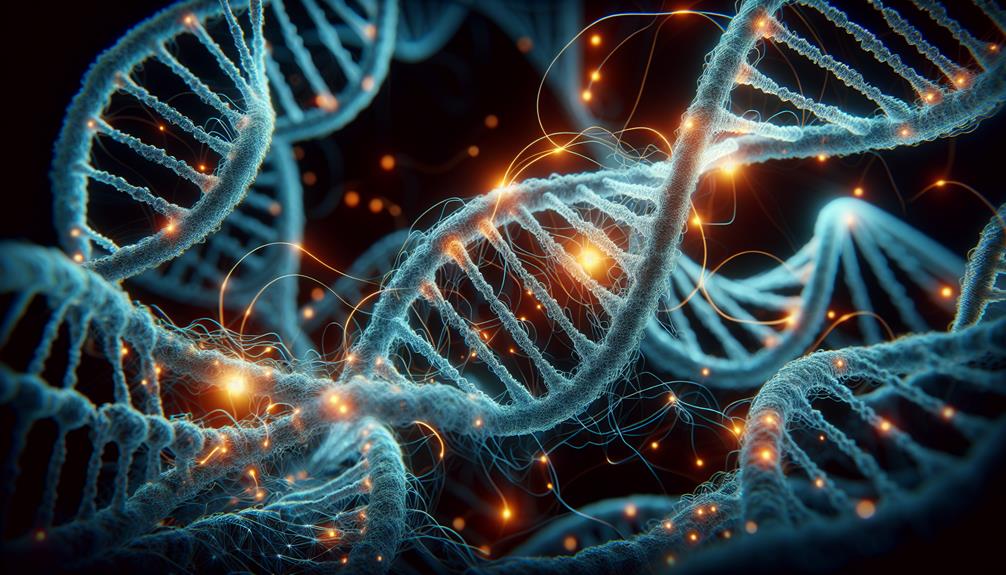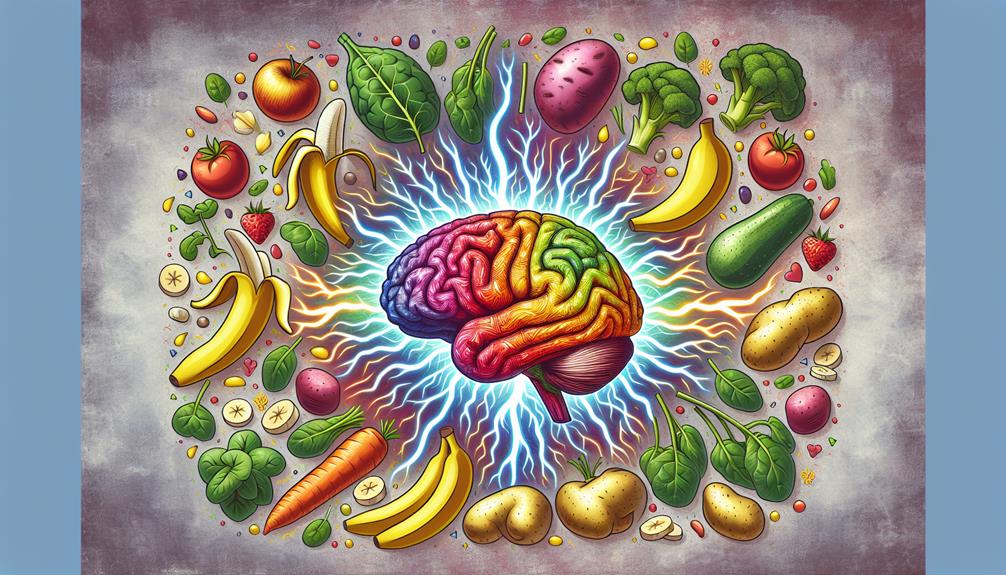







Discover how various B vitamins benefit you: B1 boosts energy from carbs, aids brain health, and memory. B2 promotes cell growth, skin, and nerve function. B3 supports DNA repair, cellular regeneration, and integrity. B5 is pivotal for hormone synthesis, stress response, and skin health. B6 aids in neurotransmitter production, memory enhancement, and cognitive function. B7 maintains hair, nails, and skin health through keratin and collagen. B12 is essential for making red blood cells, oxygen transport, and cognitive and nerve health. Each B vitamin plays a unique role essential for your overall well-being.
Key Takeaways
- Vitamin B1 aids in carbohydrate energy conversion and brain health.
- Vitamin B2 supports cell growth, repair, and metabolism of fats.
- Vitamin B3 is crucial for DNA repair, synthesis, and tissue regeneration.
- Vitamin B5 plays a role in hormone synthesis, skin health, and wound healing.
- Vitamin B6 facilitates neurotransmitter production for cognitive function and emotional regulation.
Vitamin B1: Energy Production
In your body, Vitamin B1 plays an essential role in producing energy from the food you consume. This important B vitamin, also known as thiamine, is involved in various metabolic functions, particularly in converting carbohydrates into energy that your body can use. Thiamine is a cofactor in key reactions essential for glucose metabolism, aiding in the production of adenosine triphosphate (ATP), which is the primary energy currency of cells.
Additionally, Vitamin B1 is crucial for brain health. The brain is a highly energy-demanding organ, reliant on a constant supply of energy to function optimally. Thiamine is necessary for the synthesis of acetylcholine, a neurotransmitter crucial for memory, learning, and overall cognitive function. Deficiencies in Vitamin B1 can lead to neurological symptoms, including confusion, memory problems, and even severe conditions like Wernicke-Korsakoff syndrome.
Ensuring an adequate intake of Vitamin B1 through a balanced diet is important for supporting your body's energy production and maintaining optimal brain function.
Vitamin B2: Cell Growth and Repair
Moving on from the role of Vitamin B1 in energy production, Vitamin B2, also known as riboflavin, is fundamental for cell growth and repair processes in your body. Riboflavin benefits your body by playing an essential role in cell regeneration processes. This essential vitamin is a key component in the production of flavin adenine dinucleotide (FAD) and flavin mononucleotide (FMN), which are coenzymes involved in various redox reactions necessary for cellular function.
Riboflavin is particularly important for maintaining healthy skin, eyes, and nerve function due to its involvement in cell growth and repair. It aids in the formation of new cells and supports the synthesis of DNA. Additionally, riboflavin contributes to the metabolism of fats, drugs, and steroids in the body, further highlighting its significance in overall health.
Including food sources rich in riboflavin, such as dairy products, lean meats, and green leafy vegetables, in your diet can help ensure that your body has an adequate supply of this essential nutrient for optimal cell growth and repair.
Vitamin B3: DNA Repair and Synthesis

Vitamin B3, also known as niacin, plays a pivotal role in DNA repair and synthesis processes within your body. Niacin is essential for maintaining the integrity of your genetic material by aiding in DNA protection. DNA damage can occur due to various factors like UV radiation, toxins, and normal metabolic processes. Niacin helps in repairing this damage, ensuring the proper functioning of your cells.
Moreover, niacin contributes to cellular regeneration by supporting the synthesis of new DNA. This is important for growth, repair, and overall health. By participating in DNA synthesis, niacin enables your cells to divide and multiply effectively, promoting tissue repair and growth.
Ensuring an adequate intake of vitamin B3 through your diet or supplements is crucial for supporting these fundamental processes. Including niacin-rich foods like poultry, fish, nuts, and whole grains can help you maintain the necessary levels of this essential nutrient for DNA repair, protection, and cellular regeneration.
Vitamin B5: Hormone Synthesis
Playing an important role in hormone synthesis within the body, Vitamin B5 is essential for various physiological functions. This vitamin, also known as pantothenic acid, is critical for hormone regulation, including the production of stress hormones like cortisol. Cortisol helps the body respond to stress and regulate metabolism, blood sugar levels, and inflammation. Vitamin B5 is a key component of coenzyme A, which plays a crucial role in the synthesis of steroid hormones such as estrogen, testosterone, and progesterone.
Moreover, Vitamin B5 is essential for skin health. It contributes to the maintenance of healthy skin by supporting the production of skin oils, improving skin barrier function, and promoting wound healing. Adequate levels of Vitamin B5 can help prevent skin issues like dryness, acne, and irritation. Ensuring an adequate intake of Vitamin B5 through a balanced diet or supplementation can support hormone synthesis and promote overall skin health.
Vitamin B6: Neurotransmitter Production

Supporting neurotransmitter production in the body, Vitamin B6 plays an important role in facilitating communication between nerve cells. This vitamin is essential for synthesizing neurotransmitters like serotonin, dopamine, and gamma-aminobutyric acid (GABA), which are critical for mood regulation and maintaining neurotransmitter balance. By aiding in the production of these chemicals, Vitamin B6 helps regulate emotions and promote overall mental well-being.
Moreover, Vitamin B6 is involved in memory enhancement and cognitive function. It supports brain health by contributing to the formation of neurotransmitters that are essential for memory recall and cognitive processes. Research suggests that adequate levels of Vitamin B6 are linked to improved memory performance and cognitive flexibility.
Vitamin B7: Healthy Hair and Skin
For healthy hair and skin, B7 vitamin is vital as it plays a significant role in promoting their overall condition and appearance. B7, also known as biotin, supports hair growth and maintains nail health by aiding in the production of keratin, a protein that forms the structure of hair and nails. This vitamin contributes to the strength and resilience of hair strands, reducing the likelihood of breakage and promoting thicker, fuller hair.
Moreover, biotin is essential for skin regeneration and collagen production. Collagen is a protein that provides structure and elasticity to the skin, helping to maintain its firmness and smoothness. By supporting collagen synthesis, B7 helps to improve skin health and appearance, reducing the signs of aging such as wrinkles and fine lines. Including biotin-rich foods like eggs, nuts, and leafy greens in your diet can help make sure you are getting an adequate amount of this essential vitamin for healthy hair, nails, and skin.
Vitamin B12: Red Blood Cell Formation

Vitamin B12 is essential for the formation of red blood cells in your body, ensuring proper oxygen transport and overall health. Red blood cells carry oxygen to all parts of your body, supporting energy production and metabolism. Without sufficient vitamin B12, your red blood cell production can decrease, leading to anemia and fatigue. In addition to its role in red blood cell formation, vitamin B12 plays a critical role in maintaining cognitive function. It helps in the synthesis of myelin, a protective sheath around nerves that allows for efficient nerve signaling. Adequate vitamin B12 levels are vital for nerve health, as deficiencies can lead to nerve damage and neurological symptoms like numbness and tingling. Ensuring you consume enough vitamin B12 through sources like meat, fish, dairy, and fortified foods is important for red blood cell formation, cognitive function, and nerve health.




